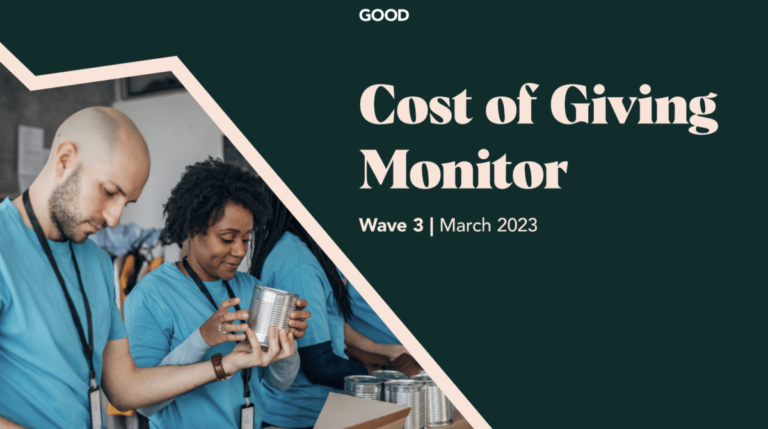Monitor finds UK poverty remains top cause to support, but priority fading

UK poverty remains the most urgent cause to support among the public, research suggests, but is slowly losing priority. Since July there has been an 11% decline in people reporting it as such, with 55% agreeing in July, 46% in October, and 44% in February.
The research, by GOOD Agency for the third and final edition of its Cost of Giving Monitor, reports a gradual shift towards other issues, such as animal and pet charities, as well as nature and the environment, which saw a significant rise in October. Support for war and disaster relief has also seen a rise, driven by global events such as the earthquakes in Turkey and Syria.
Alongside this, while many have heard that charities are working to address the cost-of-living crisis (51% amongst the British public, and 60% amongst regular givers), only 33% agree charities are doing an effective job in supporting people. While only 14% disagreed, 53% said they didn’t know, or neither agreed nor disagreed.
Advertisement
The research was conducted in February by YouGov among 2,021 UK adults. All respondents were asked 26 questions related to charity giving and how they have been affected by the cost-of-living crisis. The Monitor also includes qualitative research with five senior fundraisers on how the crisis is impacting their organisations.
Thoughts of cancelling regular gifts rise
It also found that an increasing number of existing regular givers are considering cancelling their regular gifts, with the likelihood of cancellation rising from 10% to 14% since July last year, and reducing their donations rising from 12% to 14%. The main reason for not signing up to a regular gift was not being able to afford it at the moment (29%) However, at the same time, 61% of those who donate regularly state they will keep giving at the same level, and the number of those looking to set up a new regular gift has remained the same.
As with Wave 1 and 2 of GOOD’s research, older generations are more likely to maintain their current giving levels, whereas younger generations are less likely to donate. However, a higher percentage of younger individuals expressed interest in giving more in the future.
Mixed outlook
Looking ahead, the public’s outlook and mood is divided. There is a split between those who are feeling hopeful and those who are more pessimistic. 42% selected “hopeful” when asked to choose the three words that best describe their feelings about the year ahead, closely followed by 35% who felt pessimistic.
Overall, the research found that 7 in 10 respondents disagreed that the cost-of-living crisis is now behind us and that their finances are starting to improve. 70% of respondents also report paying more attention to their monthly outgoings than they did three months ago. However, compared to Wave 1 and 2, more individuals reported that their finances are expected to stay the same, with the number rising to 38% from 29% in October.
Chris Norman, CEO and Founder of GOOD Agency, commented:
“The final wave of the Cost of Giving Monitor reveals that the UK public is starting to show signs of adjusting to the cost-of-living crisis. Worryingly it looks like the decline in the number of regular donors seen in the years before the pandemic will continue. Reframing charity’s “ask” to demonstrate the value of the donors’ support and the charity’s impact is going to be key to retain donors and engage new supporters. This research provides important insights to enable charities to plan and adapt for the future.”







